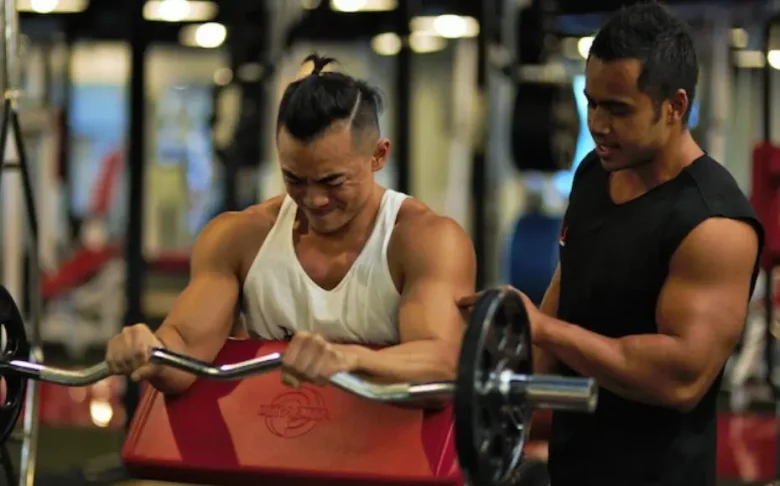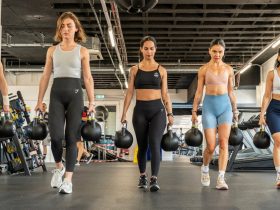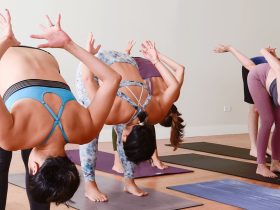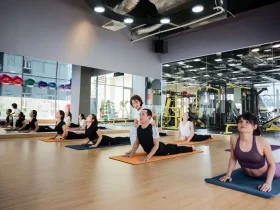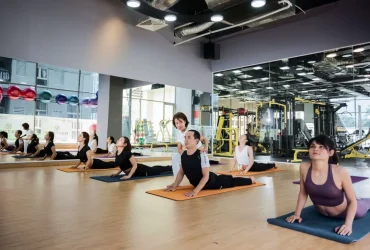Choosing the right fitness trainer Singapore can make the difference between hitting your goals efficiently and feeling stuck after months of effort. With so many options available across gyms and private studios, it’s not about picking the most popular trainer but rather the one who understands your personal objectives, health background, and preferred training style. Whether you’re aiming to lose weight, improve endurance, or recover from an injury, goal-specific training ensures your time and energy lead to measurable progress.
In Singapore, people have increasingly started to view training as a lifestyle investment instead of a quick fix. The role of a trainer today involves far more than counting reps. Trainers are becoming educators, motivators, and accountability partners who tailor every session to the individual.
If you’ve ever walked into a gym without a clear plan, you’ll know how easy it is to waste time moving from one machine to another. That’s where goal-oriented training steps in, giving structure and direction to your fitness journey. With the right approach and support, your sessions can turn from routine workouts into purposeful transformations.
For those looking to train with professionals at a top-class facility, TFX remains a well-known name in Singapore’s fitness landscape, offering an environment that supports structured, high-quality training experiences.
Understanding Goal-Specific Training
Goal-specific training focuses on aligning your fitness routine with the results you truly want to achieve. Instead of following generic programs, your trainer designs a roadmap based on your physical condition, goals, and available time.
For example:
-
If your goal is fat loss, your trainer may combine strength training with metabolic conditioning.
-
If you want to build muscle, the emphasis shifts towards progressive overload and nutrition planning.
-
For rehabilitation, controlled movement and mobility work dominate the program.
This approach eliminates guesswork. A professional trainer understands which combination of methods can safely push your body towards its limits while avoiding burnout or injury.
The Importance of Clarity Before You Begin
Before starting any program, it’s vital to define your goals clearly. Are you preparing for a specific event, like a triathlon or marathon? Or are you focusing on long-term wellness and strength? Trainers use your objectives to structure your sessions week by week.
During your initial consultation, expect a detailed assessment that may include:
-
Body composition analysis to establish your current baseline.
-
Movement screening to identify weaknesses or imbalances.
-
Lifestyle review to assess stress levels, sleep, and nutrition habits.
These details allow your trainer to develop a holistic plan instead of applying a one-size-fits-all solution. It also sets realistic milestones so you can measure your success over time.
Common Fitness Goals in Singapore and How Trainers Address Them
Singapore’s fitness community is diverse, with clients from different age groups and backgrounds. Here’s how trainers typically customise their programs for various goals.
1. Weight Loss and Body Recomposition
Many people approach trainers for fat loss. However, an experienced coach knows that long-term weight management is more than calorie restriction.
They focus on:
-
Building lean muscle to increase metabolic rate.
-
Introducing progressive cardio and resistance training combinations.
-
Offering dietary advice that complements training sessions.
Trainers also help clients understand how hydration, recovery, and sleep affect their results, which is often overlooked by those who rely on generic online programs.
2. Muscle Gain and Strength Building
Gaining muscle efficiently requires precision. Trainers evaluate your current lifting capacity, nutrition, and recovery schedule before progressing to more advanced protocols.
They teach you how to:
-
Execute compound lifts safely and effectively.
-
Track your strength improvements with training logs.
-
Avoid overtraining through strategic deload weeks.
The emphasis is always on proper form and controlled progression to ensure sustainable growth without risking injury.
3. Endurance and Athletic Performance
Athletes and recreational runners often need tailored endurance programs. Trainers incorporate a mix of resistance training, interval work, and recovery sessions to help improve speed and stamina.
This is especially valuable for those training in Singapore’s humid climate, where hydration and heat management are critical to performance.
4. Functional Training and Mobility
For professionals who spend long hours sitting, functional movement and posture correction have become common goals. Trainers design sessions that strengthen stabilising muscles, improve flexibility, and enhance balance.
These sessions also help reduce chronic back or shoulder tension, improving daily comfort and energy levels.
5. Rehabilitation and Injury Prevention
Post-injury clients require extra care. Trainers with rehabilitation knowledge work closely with physiotherapists to restore strength and confidence. Controlled exercises, stability drills, and gradual load progression help prevent relapse and rebuild trust in movement.
Matching Training Style with Personality
Choosing a trainer goes beyond qualifications. The relationship between client and trainer plays a significant role in maintaining consistency. Some people respond better to gentle motivation, while others prefer a coach with a more assertive, no-nonsense style.
Ask yourself:
-
Do you prefer one-on-one sessions or small group training?
-
Would you like a coach who provides nutritional guidance or just focuses on workouts?
-
Are you motivated by progress tracking, or do you prefer a flexible approach?
Finding the right personality match ensures your sessions remain enjoyable and sustainable over months, not just weeks.
Understanding Certifications and Specialisations
In Singapore, reputable trainers hold certifications from globally recognised bodies such as ACE, NASM, or ACSM. These certifications guarantee a baseline of knowledge in anatomy, physiology, and safe training methods.
However, beyond certifications, look for trainers who have:
-
Experience with specific demographics, such as seniors or pre/post-natal clients.
-
Specialised knowledge, like sports conditioning or corrective exercise.
-
Continued education, showing they stay updated with evolving fitness science.
The right trainer won’t hesitate to discuss their credentials, methodology, and experience before you start.
The Value of Accountability and Tracking Progress
One of the biggest advantages of hiring a trainer is accountability. When someone is tracking your progress, you’re less likely to skip sessions or drift off plan.
Trainers typically monitor:
-
Strength and endurance improvements.
-
Nutrition consistency and hydration habits.
-
Sleep quality and recovery patterns.
Most will periodically adjust your program to ensure continued progress. This data-driven approach creates visible results and keeps motivation high.
How Environment Impacts Motivation
Training in a supportive and well-equipped environment can elevate your experience. Clean facilities, professional guidance, and a sense of community all contribute to consistency.
In Singapore, where work-life balance can be challenging, having a gym that promotes a positive culture makes a big difference in maintaining momentum.
Avoiding Common Mistakes When Choosing a Trainer
Many clients make decisions based solely on convenience or price. However, a cheaper trainer may not always deliver the right expertise for your needs.
Key mistakes to avoid include:
-
Ignoring experience level: Always review a trainer’s past clients and success stories.
-
Skipping trial sessions: Testing compatibility before committing is essential.
-
Overlooking communication style: Your trainer must listen and adapt to your feedback.
Take your time to research, observe a few sessions, and trust your instincts. The right partnership will feel collaborative, not transactional.
The Long-Term Payoff of Goal-Specific Training
Working with a skilled trainer helps you develop knowledge and habits that extend far beyond the gym. Instead of relying on external motivation, you learn how to self-regulate, set achievable goals, and adapt when life gets busy.
This approach transforms short-term progress into a lifestyle change. The confidence, strength, and discipline you build carry over into your professional and personal life. In a city as fast-paced as Singapore, that kind of mental and physical resilience is invaluable.
Real-Life Benefits from Consistent Training
Clients often report noticeable changes after a few months of consistent, structured sessions:
-
Enhanced posture and energy levels.
-
Better focus at work due to improved fitness and sleep.
-
Increased self-esteem from visible progress.
-
A stronger immune system and lower stress levels.
These benefits prove that investing in a trainer isn’t just about physical appearance. It’s about overall wellbeing, productivity, and longevity.
How to Get Started
If you’re ready to commit to your health journey, begin with clear goals and professional guidance. Look for a consultation that includes assessment, discussion of your preferences, and alignment on your objectives. Once you find the right trainer, stay consistent, communicate openly, and celebrate milestones along the way.
Goal-specific training isn’t just for athletes. It’s for anyone who wants to achieve real, sustainable change in their fitness and overall health.
FAQs
Q1. How do I know if my fitness trainer in Singapore is qualified?
Check for reputable certifications like ACE, NASM, or ACSM. Ask about their experience with clients who share similar goals and review feedback from previous trainees.
Q2. How many times a week should I train with my personal trainer?
Most people benefit from two to three sessions a week, depending on their schedule and fitness goals. Your trainer will adjust based on your recovery rate and lifestyle.
Q3. Can goal-specific training help with stress management?
Yes. Structured exercise releases endorphins and improves sleep, both of which significantly reduce stress levels, especially for Singapore’s busy professionals.
Q4. How soon will I see results with a professional trainer?
Results vary depending on consistency and nutrition, but noticeable improvements often appear within six to eight weeks.
Q5. Do I need a gym membership to work with a trainer?
Not always. Many trainers offer private or home-based sessions, though a gym environment provides better access to equipment and structured programs.

